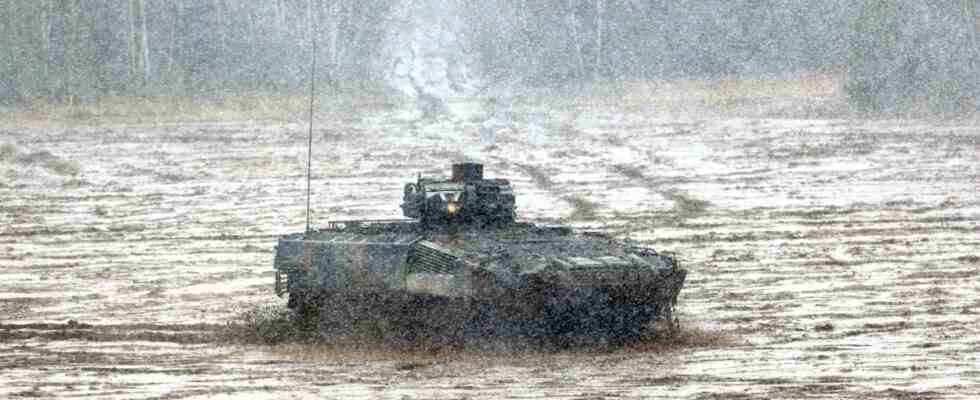If you ask people what they definitely don’t want to invest their excess money in, many say: not in weapons! Not a few consider the armaments industry to be a dirty corner of the economy. When the EU obtained the first drafts for the criteria for socially sustainable investments in the past few months, armaments should not be considered as such. And certain weapons, such as mines or cluster bombs, fell into the nasty category: “contrary to social goals.”
But with the war in Ukraine, armaments companies are experiencing an upswing. Germany is not only planning a so-called special fund of 100 billion euros to better equip the Bundeswehr. Several states also want to spend two percent of their economic output on defense every year in the future. That’s what NATO has been planning for a long time. But who expected a war in Europe?
Germany’s largest armaments group, Rheinmetall, is feeling the change in times, as Chancellor Olaf Scholz called it, in several ways: The Düsseldorf-based company expects to supply a significant proportion of the ammunition, trucks or tanks that the Bundeswehr wants to order. On the stock exchange, Rheinmetall is worth a good 60 percent more than it was before the war broke out. And the whole industry hopes to get out of the dirty corner. “Of course we never saw each other like that,” says CEO Armin Papperger.
Investors who have long avoided the industry are gradually rethinking
“Over the last 20, 25 years, the Bundeswehr has made extreme savings,” says the manager. So the turnaround is wise. Papperger admits: “This growth will not be easy.” His company has already stocked up on steel and electronics in recent months, also in response to delivery problems during the Corona crisis. But that’s not all: “We have extrapolated that we need between 1,500 and 3,000 additional employees,” says Papperger, half of them in Germany. The turning point is creating new jobs: not only in Bremen or Kiel, but also in Kassel or Unterlüß near Celle.
So far, Rheinmetall has worked in one-shift operation. But Papperger says: “Of course we can also work in multiple shifts.” Especially since the company did not only conclude the first contracts with Germany as a result of the war in Ukraine. “We also notice that with the inquiries that come from Eastern European countries.” For reasons of defense tactics, Rheinmetall is not allowed to reveal which armaments have been delivered to the Ukraine. Helmets and plates for protective vests were offered, says Papperger. Previously, Rheinmetall predicted that sales would increase by eight to ten percent this year, but the M-Dax group is now assuming growth of 15 to 20 percent.
In any case, investors who have long avoided the industry are gradually rethinking. For example, the major Swedish bank SEB has meanwhile decided not to invest in weapons. The money house is now lifting the ban for the coming month. SEB is adapting to the new reality in Europe. Although one wants to continue to avoid investments in weapons that violate international conventions. But fundamentally, investments in armaments are important in order to defend democracy, freedom and human rights.
Corporations with armaments business worried about their financing
The discussion about the so-called social taxonomy of the EU is also affecting other companies that generate smaller parts of their sales with armaments. They were used to the fact that some shareholders asked critical questions about military transactions at the general meeting. However, if armaments are not considered to be a sustainable or even harmful investment according to future EU criteria, companies could also find it more difficult to obtain loans or access them on worse terms.
At the beginning of the year, Papperger complained that two state banks had excluded Rheinmetall from lending – on the grounds that ecological and social criteria and good corporate governance were becoming increasingly important. The technical term with the English abbreviations for environment, social and governance is ESG.
Corporations and unions, on the other hand, point to thousands of comparatively well-paid jobs in the armaments industry and its suppliers in this country. On the other hand, the industry now makes a contribution to the defense capability of Europe or the NATO countries.
In any case, Papperger sees signs that the EU does not want to recognize the armaments in their planned classification as harmful per se. As far as ESG is concerned, Rheinmetall is doing a lot when it comes to “E”, for example it is purchasing more and more green electricity and increasingly heating with wood chips. The company also works steadily at the top of the governance rankings. “We now hope that in general we won’t get any negative impacts in the S-area either,” says Papperger somewhat cryptically.

